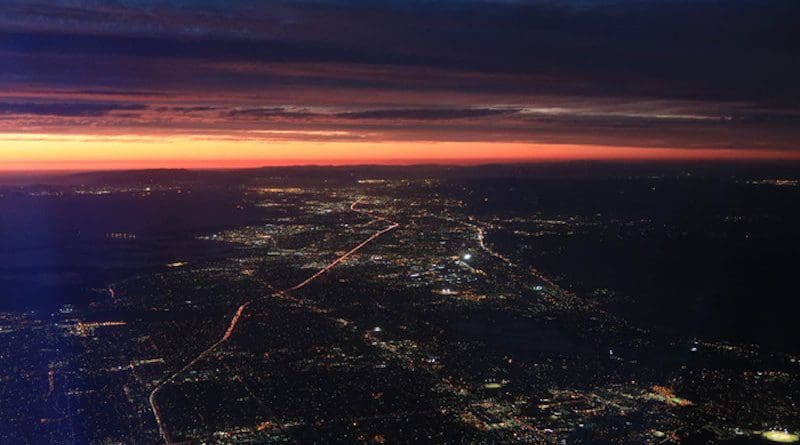Urbanization Magnifies Nighttime Heat Waves In China
Extreme temperature events will likely increase and cause severe damage to human society and natural ecosystem under climate change and urbanization. Compared to daytime, nighttime heat waves reduce people’s ability to cool off and prevent the human body from recovery after daytime heat exposure, and therefore increasing risks of heat related illness and mortality.
A new study, published in Geophysical Research Letters, shows how the urban expansion is attributed to intensified nighttime heat waves in China. The study was led by scientists from the Institute of Atmospheric Physics at the Chinese Academy of Sciences.
The new study showed that nighttime heat waves have been more frequent, longer-lasting and severer, and occurred increasingly earlier in spring and later in fall across the country during 1980-2017 based on measurements from more than 2,000 meteorological stations and satellite derived urban fraction data. Meanwhile, these changes have been more intensive in urban areas than their surrounding rural areas.
The new study highlights that urbanization accounted for nearly 50% of the extended duration and nearly 40% of the enhanced intensity and frequency of nighttime heat waves in urban areas relative to rural areas.
“Urban expansion reduces evapotranspiration and weakens wind speed that normally cools the lower atmosphere by turbulent heat loss and cooled air advection,” said Zitong Shi, first author of the study, “and thus it leads to nighttime urban heat island, and enhances nighttime heat extremes.”
“As of 2020, more than half of the world’s total population live in urban. This population is especially vulnerable to amplified nighttime heat waves.” said Gensuo Jia, correspondence author of this study, “The nighttime heat wave is magnified in urban areas largely because of expansion of urban built-up and related urban heat island effect.”

